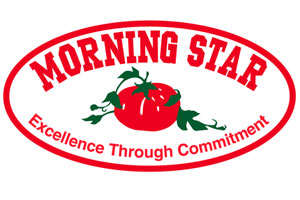Tomato Distributor Works With Large, Small Scale CA Farms
Morning Star Company Supplies Tomatoes to Large Distributors
By Emily McKay Johnson, Associate Editor
The state of California has an ample supply of tomato processors and growers. Renee Rianda, a representative with Morning Star Company, talked about the Woodland, Calif. packing industry that mainly supplies to large distributors. “Morning Star company is the overall umbrella. Morning Star is a big player.” she said, “We are unique in the fact that we are owned by one person.”
The majority of California tomatoes are used as an ingredient in other brands. Morning Star is a name that is familiar with companies such as Domino’s Pizza and Heinz Ketchup. They are not branded like companies such as Del Monte or Campbell’s, but they are used in prepared foods for grocery stores.
“Where I fit into this whole massive situation is I deal with the growers.” she said about her role with the company, “I use roughly a couple hundred growers which is not quite everybody in the state but most of them.”
The fluctuation in supply and demand for tomatoes can vary from year to year. Rianda said that is why they work with a variety of farms in California, “We have everybody from a small individual grower of everything to larger family farms that do a variety of commodities.”
Though there is not a panel or board of directors, the Morning Star Company base is efficient. “We’re very flat as far as an organization goes.” Rianda said, “Everybody has their expertise in the areas that they are best versed in.”
Rianda likes to keep herself updated at conferences around the state. In turn, she can help growers have a commodity to sell. Using the right products is key to Rianda, “That way everybody can still have ample tomatoes to eat.”











